Gas is not great for internal air quality
eam44
3 years ago
last modified: 3 years ago
Featured Answer
Sort by:Oldest
Comments (63)
catbuilder
3 years agoTHOR, Son of ODIN
3 years agolast modified: 3 years agoRelated Discussions
Great Program on PBS this Weekend Plus Addtnl Airings
Comments (6)Heifer International is a fabulous organization. I have a neighbor who was given "a flock of geese" in her name for Christmas two years ago. All the neighbors thought it was such a great idea, we all gave a training or animal gift for someone else last year. The items in their datalog are the perfect Christmas gift for someone who has "everything" No clutter, and you truly help someone in need. For anyone who missed the programs, you can view them online in full: BOTANY OF DESIRE is a documentary which tells the utterly original story of everyday plants and the way they have domesticated humankind. An interpretation of the relationship between plants and people. This two-hour documentary explores plant evolution and takes viewers from the potato fields of Peru and Idaho, the apple forests of Kazakhstan, and the tulip markets of Amsterdam. View online in it's entirety: here This is another related program by the same presenter on LINK TV (a cable access channel) which is timely: Deep Agriculture Traditional methods of agriculture in most developed nations have long ignored environmental concerns. Factors such as soil erosion, water shortage and the impact of chemicals on bio-systems have been overlooked in favour of massive crop yields and cheaper food. But what impact does this have on our health and our environment? View online in it's entirety: here Here is a link that might be useful: Heifer International Online Gift Catalog...See MoreAre there any reliable/decent quality gas ranges for under 3K?
Comments (7)Hoss feathers, Hollysprings. Many of us have ovens that have both convection and no convection, yet we don't use convection all the time, and stuff still comes out great, (without the convection). I've cooked things both ways, meatloafs, stuffed bell peppers, spaghetti pie, (No cookies thou)and I would be hard pressed to tell which was baked which way. In fact I have a hard time to get the wife to use the convection in the Elux oven, even thou we've had it over 5 years now, She was just used to her old oven in the range and things came out great and it didn't have convection. There does seem to be a particular problem with the GE ovens thou, especially without convection, did you Note Rhome's Psycadellic pizza that she cooked in her GE oven? I suspects she has no such problems with her Wolf now regardless of whether she chooses convection or not! Gary...See MoreJenn-Air vs. Electrolux ICON gas ranges
Comments (20)Thanks to you both. I went to a Universal Appliance (in LA) at lunch today, and saw that the 69" KA/JA FD refrig doesn't have freezer space large enough for my needs. I could do another SxS I guess, but I'm in the mood for a different look. That means I have to go with either the JA JFC2290VEP for $3049 or the identical KA model KFCP22EXMP for $2600ish. Both are before tax (8.75% in LA county) and rebates. I can only hope that they will fit, or that I can sand a bit off the cabinet frames to ensure they fit. The JA DW JDB3600AWP runs $1299 here, but no matter since it's the N/C item. If I opt to go the KA path depending on the range I get, the identical KA model is KUDE40FXSP that runs $1189. I haven't completely walked away from American Range, Blue Star and Capital-Precision yet. As much as I like the Jenn-Air Pro, I can't get by my fear of that electronic window on the front fizzling out. The salesman today said that if it goes, it's about an $800 (plus labor) item. Yikes. I knew this wasn't going to be an easy decision process, but I wish I could stop making it so difficult for myself, LOL Your input is valued more than you could guess. I am most appreciative here....See MoreTiny Home Air Quality
Comments (10)Thanks Scott, this was a good article, and good comments followed it. I was saved (as were my DH, his dad, and our three dogs) by a CO alarm. My sis-in-law had Dad-care duty that evening, and my DH and I must have been out. Sis-in-law must have gotten cold, and turned on the furnace. Seemed reasonable to her, I imagine. What she didn't know is that we were nursing a 29 year-old furnace, waiting for our previous house to sell so we could replace the furnace. I would never have turned on the heat until I had the furnace inspected, and Dad had a space heater in his room (and we had a heated mattress pad). We did not hear the furnace come on while awake, and did not notice it was turned on. At 3 in the morning, DH heard the CO alarm and went to see what it was. I heard him, and woke. I grabbed the phone and we gathered up Dad into his wheelchair with some blankets around him and got out. I called 911 from the front porch, then went in for our dogs. I was just putting them in the car when the FD arrived. They measured the CO as very dangerous in the basement, but we were able to return to the house and sleep after the house aired out for a while. They condemned the furnace. We had a new one in a couple of days. I also want to remind folks of some dangers they may not be aware of. Non-stick pans, when heated past a certain temperature, release toxic fumes. Unfortunately, some people learn this when their pet birds die. The saying "canary in a coal mine" exists for a reason. A bird will be affected by no-odor gas and will die while the air is still good enough for the miners to make an escape. I won't have non-stick items in my house. I could not understand why the George Foreman grill and other pans for cooking at high heat are made of non-stick. It makes no sense to me. My next concern is not really associated with indoor air quality, but does involve cooking. When microwaving, please do not use unapproved plastic containers. The plasticizers - petrochemicals that keep plastics from being brittle - mimic hormones in our bodies. They are called "endocrine disruptors" for that reason. Some believe that they cause problems when our bodies react to them as if they were our own hormones. I have glass dishes and lids for storage and reheating of food. I also use waxed paper instead of plastic wrap in the microwave. I am quite sensitive to the products of combustion. They set off my asthma. So nothing is burning in my house. I never understand why having a lit fire is so important in camping or having a gathering outside. There is a whole lot of life I don't get to participate in because lit wood, charcoal and gas fires are involved. I can feel the sucky moisture of gas fires in my lungs. I cannot tolerate a gas stove, even burning natural gas. Thanksgiving was always at my house, since I cannot go to a house where a gas oven is cooking the turkey....See MoreZalco/bring back Sophie!
3 years agoprairiemoon2 z6b MA
3 years agolast modified: 3 years agoTHOR, Son of ODIN
3 years agoprairiemoon2 z6b MA
3 years agolast modified: 3 years agomama goose_gw zn6OH
3 years agolast modified: 3 years agoroarah
3 years agolast modified: 3 years agoM
3 years agolast modified: 3 years agoL thomas
3 years agoroarah
3 years agolast modified: 3 years agoprairiemoon2 z6b MA
3 years agolast modified: 3 years agokaseki
3 years agoTHOR, Son of ODIN
3 years agoprairiemoon2 z6b MA
3 years agoL thomas
3 years agoprairiemoon2 z6b MA
3 years agodan1888
3 years agolast modified: 3 years agoIsaac
3 years agoprairiemoon2 z6b MA
3 years agoweedmeister
3 years agoIsaac
3 years agokaseki
3 years agoUser
3 years agoIsaac
3 years agoopaone
3 years agoopaone
3 years agoprairiemoon2 z6b MA
3 years agolast modified: 3 years agoprairiemoon2 z6b MA
2 years agokaseki
2 years agoprairiemoon2 z6b MA
2 years agokaseki
2 years agoM
2 years agoprairiemoon2 z6b MA
2 years agoM
2 years agoprairiemoon2 z6b MA
2 years agolast modified: 2 years agoopaone
2 years agoprairiemoon2 z6b MA
2 years agokaseki
2 years agobry911
2 years agolast modified: 2 years agoopaone
2 years agoprairiemoon2 z6b MA
2 years agolast modified: 2 years agoMiranda33
2 years agolast modified: 2 years agokaseki
2 years agobry911
2 years agolast modified: 2 years agoprairiemoon2 z6b MA
2 years agobry911
2 years agolast modified: 2 years agojwvideo
2 years agolast modified: 2 years agoprairiemoon2 z6b MA
2 years agolast modified: 2 years agojakkom
2 years agolast modified: 2 years ago
Related Stories

BEDROOMSThe Right Mattress: The Secret to a Great Night’s Sleep
We spend a third of our lives asleep, so investing in a quality mattress is essential. Check out this expert advice to help you choose yours
Full Story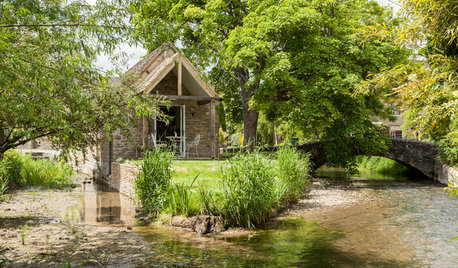
VACATION HOMESWorld of Design: 10 Great Escapes Built for R&R
These vacation homes from around the globe will make you want to take flight
Full Story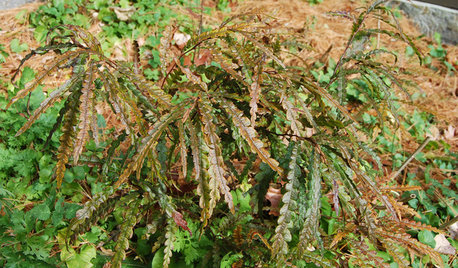
GARDENING GUIDESGreat Design Plant: Comptonia Peregrina
Though not a fern, sweet fern sure smells sweet and thrives in tough spots where many shrubs and ferns cannot
Full Story
FURNITUREHow to Spot High-Quality Wood Furniture
Discover the pros and cons of solid wood, plywood, particleboard and MDF furniture
Full Story
HOUZZ TOURSMy Houzz: International Meets Industrial in a Brooklyn Loft
Global pieces and antiques bring warmth and personality to an artist's home in an 1890s industrial building
Full Story
GARDENING AND LANDSCAPING10 Great Outdoor Chill Zones
Whether you have a huge poolside deck or a sliver of a patio, these ideas will kick stress to the curb all summer long
Full Story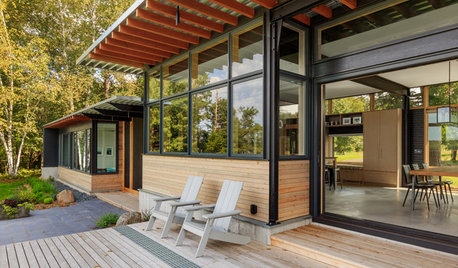
LIFE6 Ways to Cool Off Without Air Conditioning
These methods can reduce temperatures in the home and save on energy bills
Full Story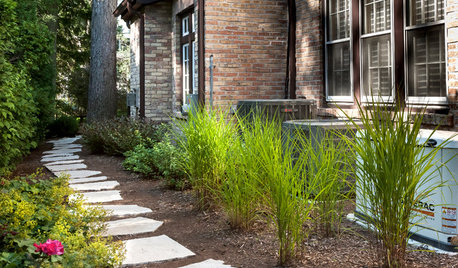
MOST POPULAR5 Ways to Hide That Big Air Conditioner in Your Yard
Don’t sweat that boxy A/C unit. Here’s how to place it out of sight and out of mind
Full Story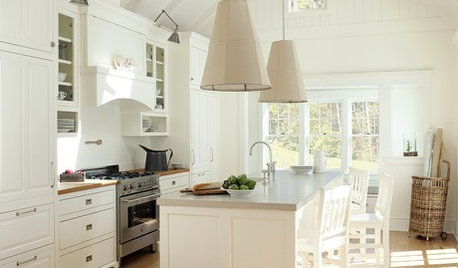
HEALTHY HOMEGet Cleaner Indoor Air Without Opening a Window
Mechanical ventilation can actually be better for your home than the natural kind. Find out the whys and hows here
Full Story
MOST POPULAROvernight Guests Coming? How to Be a Great Host
Ensure a good time for all — including yourself — by following these steps for preparing for and hosting houseguests
Full Story



L thomas